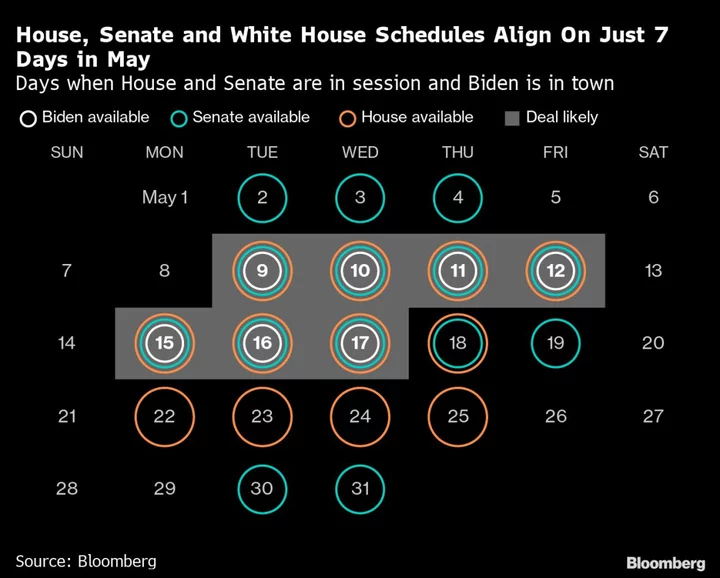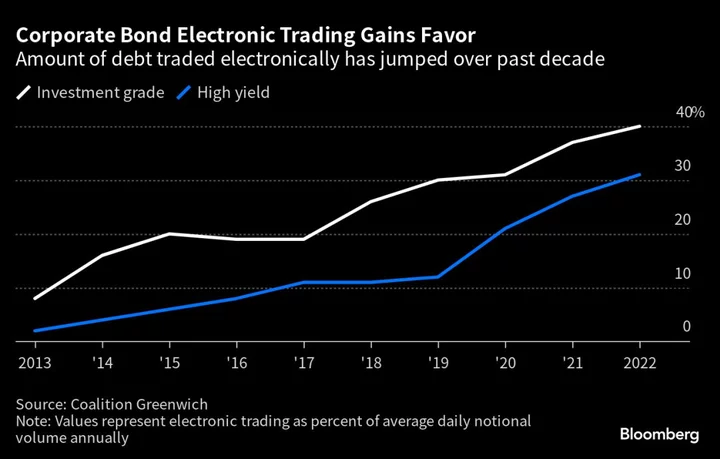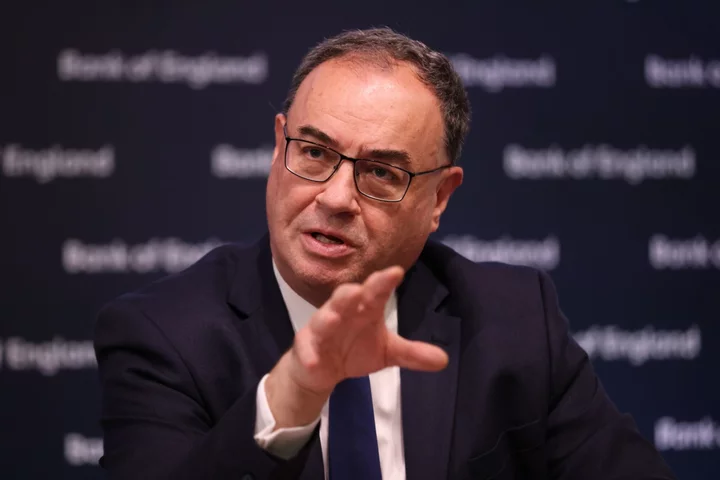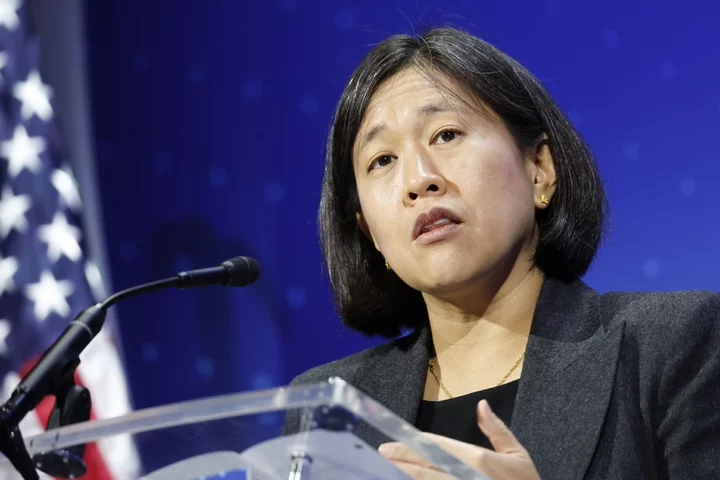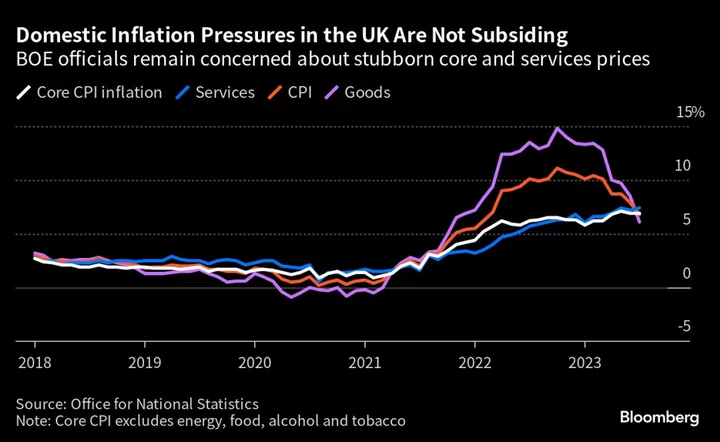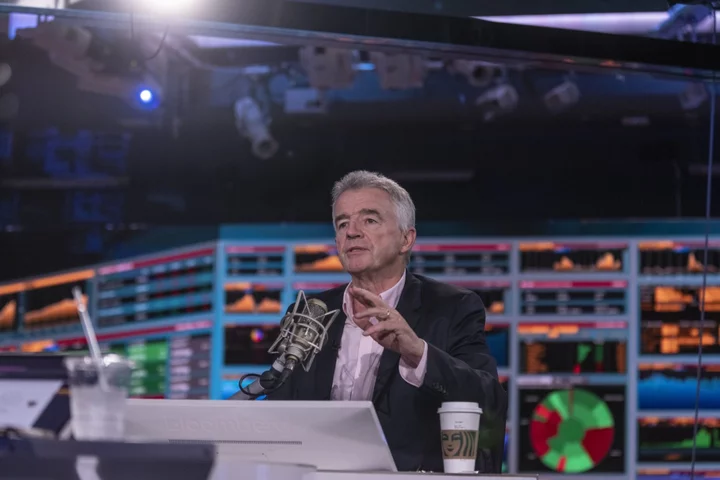President Joe Biden will sit down with House Speaker Kevin McCarthy for their first meeting in three months as the two face pressure for a debt-ceiling deal before an unprecedented default wreaks damage on the US economy.
They will be joined at the 4 p.m. meeting in the Oval Office on Tuesday by House Democratic Leader Hakeem Jeffries, Senate Majority Leader Chuck Schumer and Senate Republican Leader Mitch McConnell — but the ultimate responsibility to resolve the months-long standoff will ultimately fall on the president and speaker.
The two have spent months digging in, prompting anxiety in markets and among business groups who have stepped up calls for them to quickly forge an agreement.
Tuesday’s meeting bringing them face to face marks a key milestone, but expectations for a breakthrough are low. McCarthy insists on spending cuts and deficit reduction in exchange for raising the debt limit, while Biden wants it increased as a condition for any fiscal talks.
The White House said Monday it was up to Congress to raise the ceiling. “House Republicans are manufacturing a crisis,” said White House Press Secretary Karine Jean-Pierre. “This is their constitutional duty. Congress must act. That’s what the president is going to make very clear to the leaders.”
The biggest US business lobby weighed in Tuesday, saying in a statement that caps on discretionary spending ought to be included in a bill raising the debt ceiling. Neil Bradley, the Chamber of Commerce’s chief policy officer, also said in the statement that permitting reforms to ease project approvals are also “ripe for inclusion.”
Meantime, the deadline for a deal is inching closer, but no one knows when that will be, exactly.
Treasury Secretary Janet Yellen has been conducting a media blitz to warn of the economic carnage resulting from a default. Yellen said the Treasury could run out of cash as soon as June 1 or “a number of weeks later.”
The Bipartisan Policy Center, whose forecasts on the debt ceiling are closely watched, projects the US would default on a payment obligation sometime between early June and early August. Large payments due before an infusion of tax revenue on June 15 are especially at risk, including two to Social Security beneficiaries and a federal salary payment, BPC analyst Shai Akabas told reporters.
“It is certainly time to be getting concerned,” he said, urging Congress to increase the debt limit before June.
Joshua Bolten, chief executive officer of the Business Roundtable, called on both sides “to commit to substantive negotiations on an agreement that can pass the House and Senate.”
According to Bloomberg economists Anna Wong and Tom Orlik, if the government defaults, the blow to the economy and markets could rival the 2008 crash.
Biden’s hopes of dividing the Republican position are fading.
Over the weekend, 43 Senate Republicans said they wouldn’t support a debt-ceiling increase without fiscal reforms, effectively ending hopes the chamber would present an off-ramp to the crisis. McConnell, who has a long history of hammering out deals with Biden, said he’s warned the president he must reach an agreement deal with McCarthy.
“They’re assuming there’s some little secret plan here,” McConnell told Bloomberg on Monday. “The White House and the speaker’s teams need to sit down now and settle it.” Still, McConnell predicted they would reach a deal.
While no deal is likely to emerge Tuesday, the meeting could generate movement, however incremental. Jean-Pierre signaled there will be fiscal talks. “They’ll also discuss a separate process for budget and appropriations,” she said.
The leaders could also announce a process for reaching an accord, such as deputizing lawmakers to hash out a fiscal 2024 topline budget level by a certain date.
--With assistance from Steven T. Dennis.
(Updates with Chamber of Commerce statement, in sixth paragraph.)

